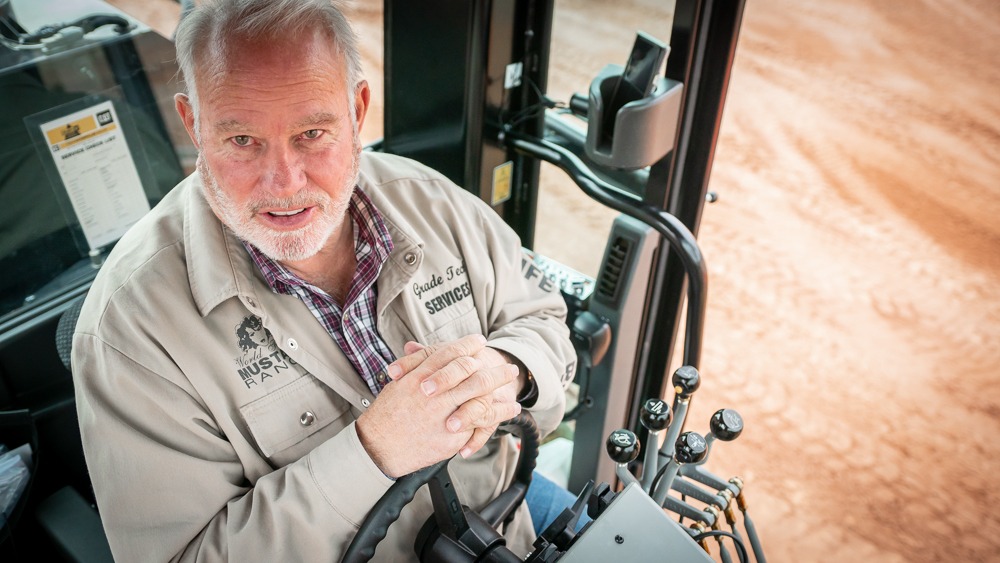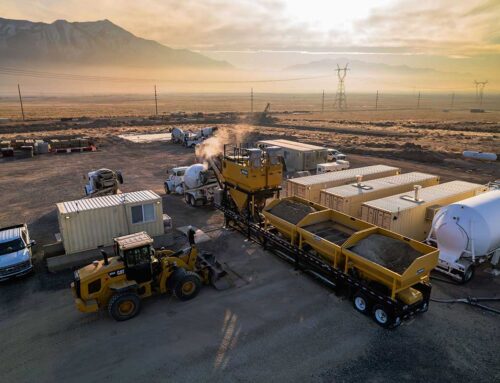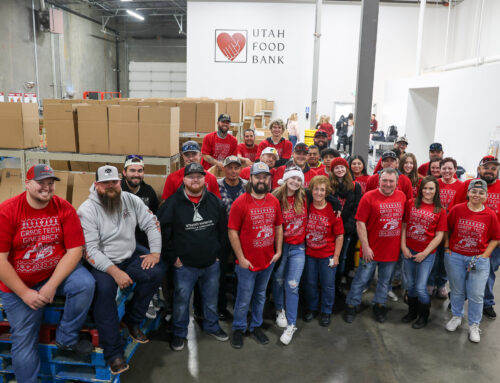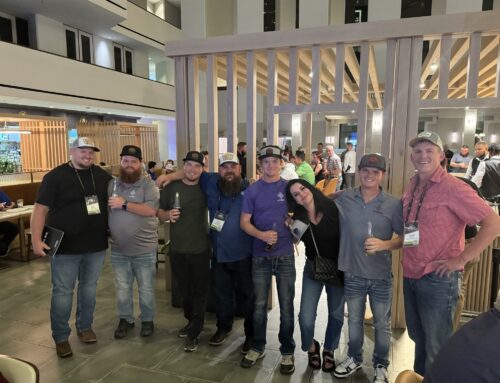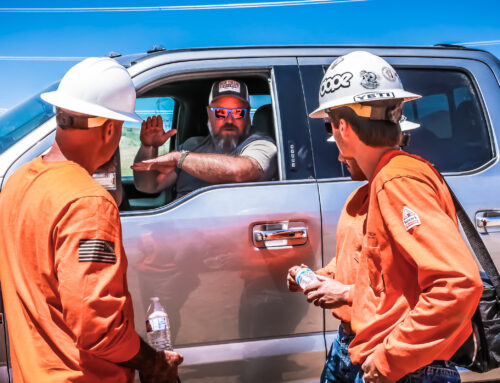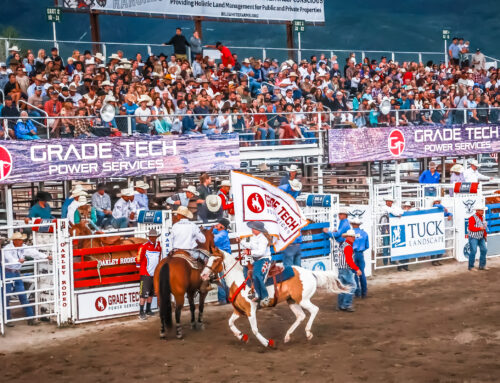There has been a lot written over the past several years about the need to develop a younger generation of tradesmen to whom the current generation can pass the torch. There are plenty of benefits to learning a trade and joining a company like Grade Tech. The pay is good, there is plenty of opportunity to learn from a team of experienced graders, excavators, truck drivers, and other professionals, and there is opportunity to advance as far as you want. Working in the trades and at Grade Tech also gives young men and women the chance to work outside (not behind a desk or in cubicle), to travel, and to develop their physical abilities as well as their problem-solving skills. The work you do in a job at Grade Tech will also have a profound impact on the local community and, in a broader sense, on our country.
Make no mistake, there is plenty of opportunity in the blue collar sector, and if you dig in and work hard, you can earn a great living and make a difference while doing it.
But what does it take to make it in a trade? What does it take, for instance, to have a successful career as a grader at Grade Tech? And, to take it one step farther, what would it take to for an ambitious tradesman to work his way up the ranks and become an owner/operator of a company like Grade Tech?
To get realistic answers to these questions, there is no better person to ask than Billy Hall, Co-owner of Grade Tech Power Service. A second-generation grader operator, Billy Hall learned the trade from his father Bill, and passed along his love for the job to his son, Co-founder and Chief Operating Officer of Grade Tech, Rory Hall. All one needs to do is listen to his story – in his own words – to see the passion he has for the job and get a good picture of what it takes to be successful.
Billy’s Words: What It Takes to Be a Good Grader Operator
So many aspects make you a good grader operator. For instance, if you’re in charge of grading on the job, you need to have a handle on everything related to your job, such as how much material you need, what trucks you need, how much water you need. You need to make sure you stay on schedule or faster – you want to do it right the first time so you don’t even go over an inch in dirt.
To get that experience and learn everything you need to know, time in the seat is what counts. You need to be a good mentee. You need to have a hunger to learn and a drive to make a lifelong career out of it.
There aren’t many good operators anymore like there was when I was coming up. That’s because of technology and more advanced equipment like the GPS. These days, you just flip a switch and the GPS will do the work for you. If the GPS stops working, the job comes to a halt. The operators are handicapped. It’s a lost art because they don’t learn every aspect that it takes to do the job. You can’t just learn the technology, you have to learn the equipment.
For instance, guys coming through today don’t know what the hubs are – I’ve graded over millions of them and can tell you what they are and how to properly account for them. You have to know things like the standard road has a 2 percent crown in the middle so that the water runs off of it. It’s these types of things that make a difference. With my knowledge, I can grade a 100,000 square foot subdivision in 2 days. An average job of this nature can take up to 1 week. There is no replacement for knowledge. If you want to be a better-than-average operator, you need to learn everything, not just what you can do with technology. These are the things that save money on a job – knowledge is money.
It’s a shame that they just don’t teach kids trades anymore. I am a grader operator, but I’m a welder, estimator, mechanic, and truck driver. I can do all facets of what it takes. You used to be able to find a farm or ranch kid and they were the best because they wanted to learn everything, not just what’s specific to their job. The hours didn’t bother them, the work ethic was there. If it broke, they figured out how to fix it and keep it going. It’s that kind of ingenuity and motivation that makes a difference.
To be a good blade hand you have to have a good vision of what it will look like when it’s done. My dad said, “Sculpt me a figure out of this big pile of clay.” You have to have the vision before you get started. At the end of the day, I’ll be thinking about what I’m going to do the next day, how I’m going to do it, and what I need by the time I get there. I always beat my team to work in the morning and didn’t get out of the seat until the end of the day.
Billy’s Words: How He Became an Owner/Operator
I really enjoyed mechanics and through my years of being a grader operator, my interest in mechanics and welding came in handy because I taught myself, so I could fix my own equipment. This was a big advantage and helped to save money within the business – which is really important, especially when you are just starting out.
When I got my contracting license and started Hall Excavating, it was a struggle. Finding clients, doing all the estimating and all the grading – it was a lot. I started by excavating new subdivisions, working for all the asphalt companies in town. When I bought a scraper, I would grade, then excavate the subdivisions as well. At first, it was all me…as the owner/operator of Hall Excavating, I had to learn how to do everything. I eventually added a water truck and a roller. Then hired a couple of guys. It was a gradual process and I started working for all of the developers in the valley. After 35 years of this, the margins were getting tighter, so I sold everything, but one grader, a water truck, and a roller – and I went back to the basics.
A few years later, Rory and I saw a need for graders and excavators in the power industry, so we started Grade Tech. Being an Owner/Operator is rare these days. But, believe me, it makes a big difference – it is a big advantage. What I can do in 40 hours or less takes others 80 hours. I think the secret sauce of being an owner/operator is that we care about all of the details. We’re not working for someone else. We understand that the details are important and time is money. You just don’t get that kind of dedication and motivation when you’re working for someone else.
Do You Have What It Takes?
To sum things up, Billy Hall succeeded because he is really good at what he does. But those skills weren’t developed overnight; it took a lot of hard work, time in the seat, and learning on the job to build a successful company. There is no substitute for experience – the best way to learn is to get out in the field and dig in – to get your hands dirty, so to speak, and learn each and every facet of the job and commit to a trade.
Yes, today’s equipment and technology can provide a shortcut of sorts, but what happens when that technology fails? Can the job just stop? Not hardly. Being “old school” has its advantages and Billy urges every operator to learn the job without the technology and then to use the technology to enhance the manual skills. It is the perfect marriage between old and new – using the know-how gained from running the equipment without the added technology, and then using those skills to get the most out of the current technology to find the best solution to get the job done.
In this business, experience and knowledge are more powerful than technology – if you have the deep expertise that can only be gained by learning the ins and outs of the equipment, you can then make the best use of the technological advances and tools because you took the time to get a basic understanding of how things work.
Make no mistake about it, the key to success is experience and knowledge – or doing it “old school”, like Billy Hall.
If this sounds like a good fit for you, check out our careers page!

